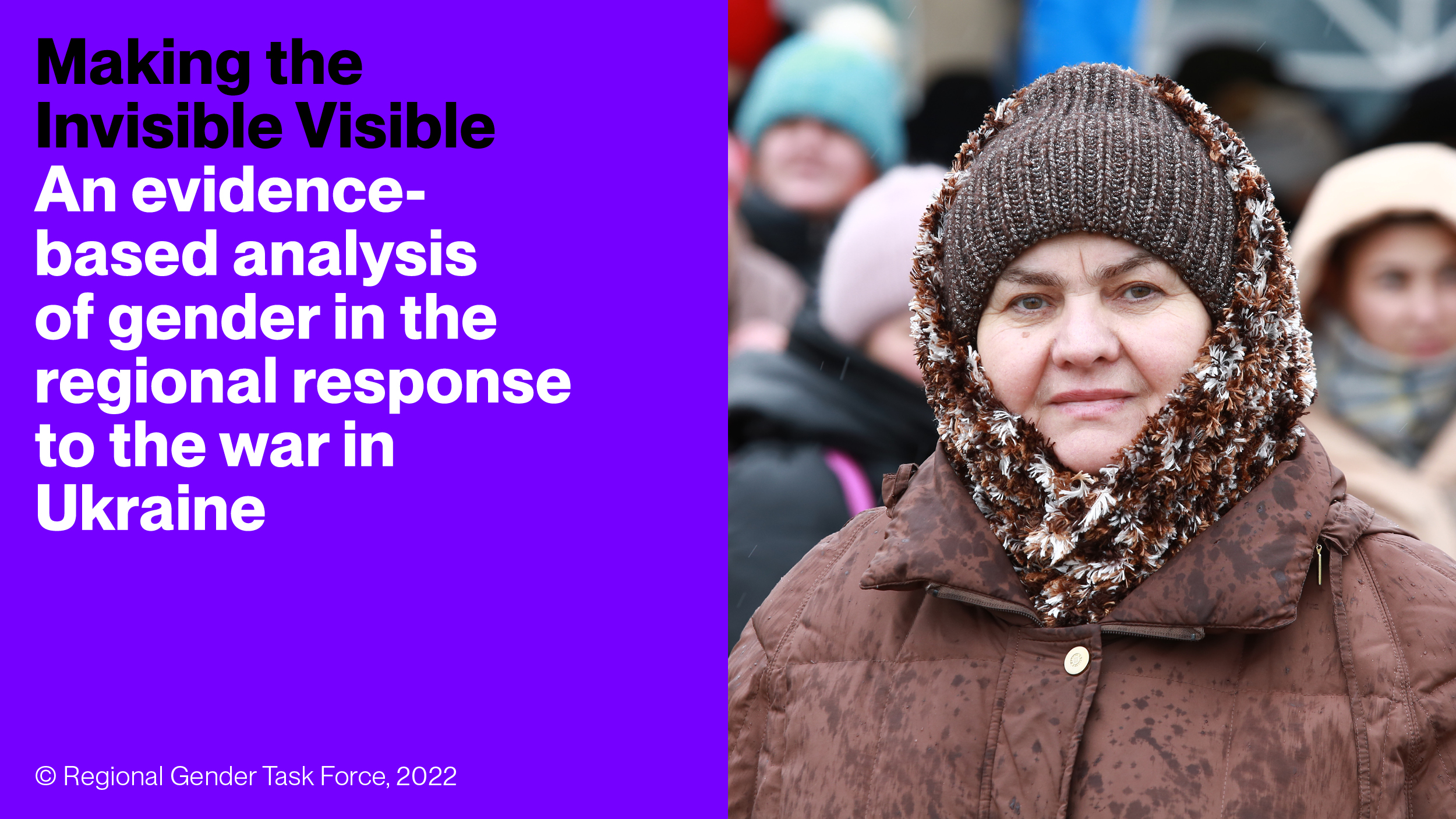New report provides gender analysis of the regional humanitarian response to the war in Ukraine
Date:

The escalation of the war in Ukraine has caused thousands of casualties, destroying civilian infrastructure, including hospitals, and triggering the fastest-growing displacement crisis in Europe since World War II.
However, gender themes, including trends, gaps and specific challenges faced by women and men belonging to different socio-economic and ethnic groups across the humanitarian and refugee response in the region, have not been captured adequately.
A new report published by the Regional Gender Task Force (RGTF)[1], the leading advocacy and information and coordination platform on gender in humanitarian action in Europe and Central Asia, provides an in-depth analysis of existing evidence to increase understanding of gender and other social aspects and trends across the region.
The report, entitled Making the Invisible Visible: An evidence-based analysis of gender in the regional response to the war in Ukraine, focuses on four areas of concern:
- Participation and leadership of women-led organisations, women’s rights organisations, women and marginalised groups
- Prevention, mitigation, and response to gender-based violence
- Access to and availability and enjoyment of sexual and reproductive health and rights
- Intersectionality of gender and diversity factors affecting the multiple and intersecting challenges faced by women, girls, boys, and men.
Targeting policymakers, donors and actors working directly on the ground, the regional analysis focuses on secondary analyses from Ukraine and neighbouring countries, including Hungary, Moldova, Poland, Romania, and Slovakia, from 13 April to 31 August 2022.
The report concludes with clear, practical recommendations for decision-makers in the humanitarian response, states, policymakers and donors.
The Regional Gender Task Force is co-chaired by CARE International and UN Women and includes the following organizations: ACTED; ActionAid; Center for Reproductive Rights; Corus International; Food and Agriculture Organisation (FAO); International Council of Voluntary Agencies; International Labour Organisation (ILO); International Organization for Migration (IOM); International Planned Parenthood Federation (IPPF); ICVA Network; ILGA Europe; International Rescue Committee (IRC); Médecins du Monde; Mercy Corps; Organisation Intersex International Europe; Oxfam; Plan International; Premiere Urgence International; Project HOPE; Save the Children; United Nations Children’s Fund (UNICEF); United Nations High Commissioner for Refugees (UNHCR); United Nations; Development Programme (UNDP); United Nations Industrial Development Organisation (UNIDO); United Nations Joint Programme on HIV/AIDS (UNAIDS); United Nations Office for the Coordination of Humanitarian Affairs (OCHA); United Nations Population Fund (UNFPA); VOICE; World Bank (WB); World Food Programme (WFP); World Health Organisation (WHO) and World Scout Bureau European Office.
Read the report here.
For further information on the Gender Analysis or the Regional Gender Task Force, please contact: Rebeca Acin, rebeca.acin@unwomen.org.
[1] The Regional Gender Task Force (RGTF) was established in March 2022 within the framework of the Regional Refugee Response Plan created to promote and implement a comprehensive response to support efforts by neighbouring countries to protect and assist refugees coming from Ukraine. Under the umbrella of the inter-agency Regional Refugee Coordination Forum (RCF) chaired by UNHCR, the RGTF aims to mainstream and integrate gender equality and the empowerment of women and girls in refugee response to the Ukraine war.